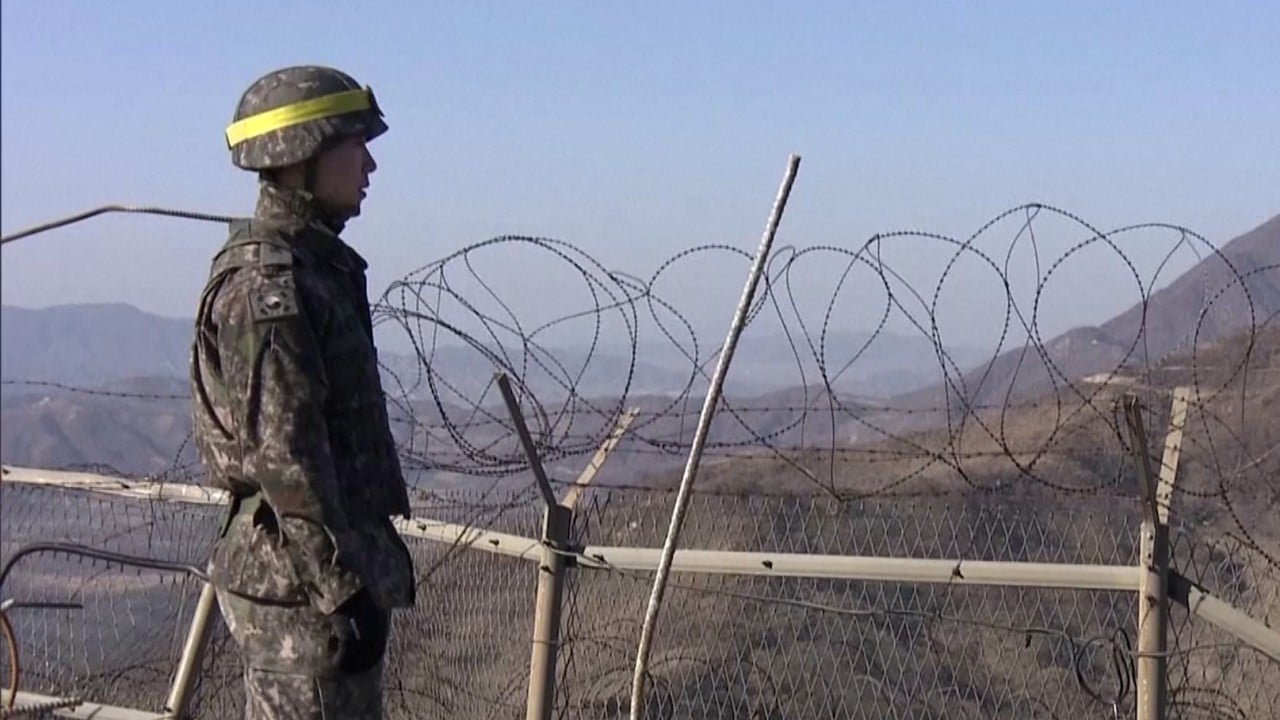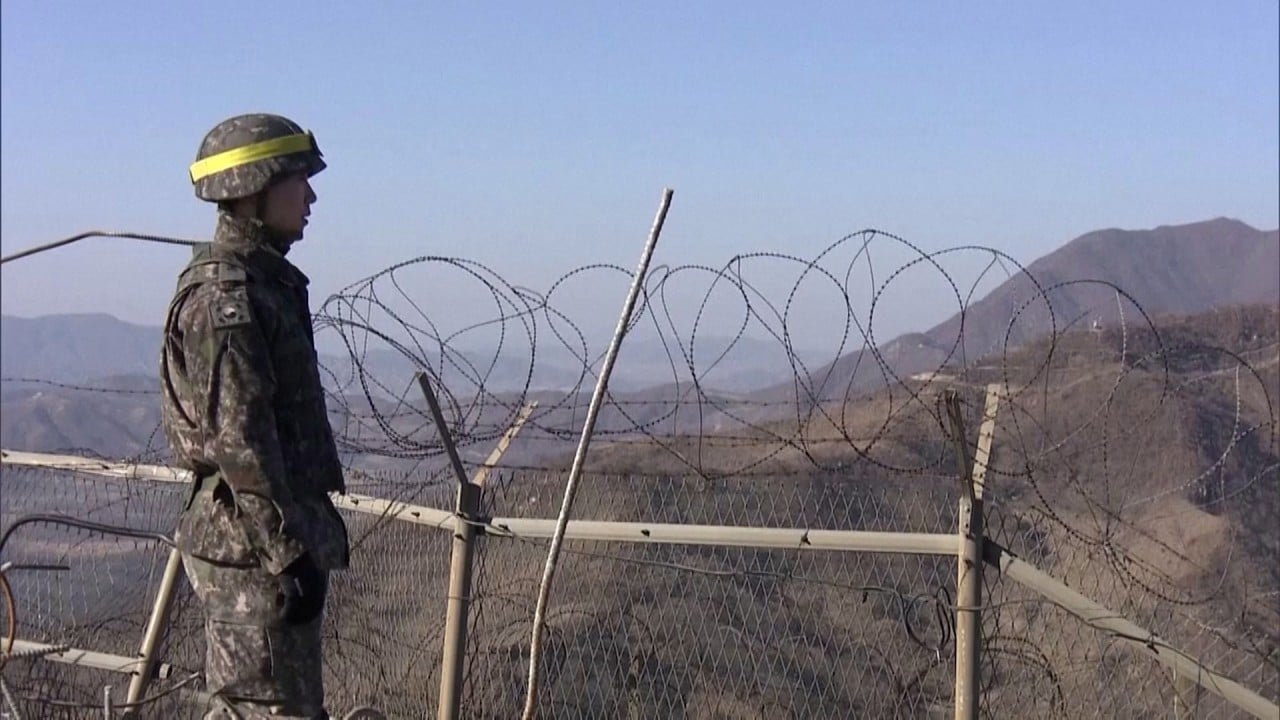Defence ministers from South Korea, the United States and Japan have signed a landmark agreement to formalise their trilateral security cooperation, but analysts warn that politics and historical tensions between Seoul and Tokyo could undermine it.
Although the memorandum of cooperation is not legally binding, South Korean Defence Minister Shin Won-sik underscored the significance of the Trilateral Security Cooperation Framework (TSCF), describing it as “the first document in history” that would act as a foundational agreement to “institutionalise” the three-way security cooperation.
Shin dismissed claims that the signing was hurried to occur before the US presidential election in November.
“The acceleration of security cooperation is driven by the volatility of the security situation, not by the US political calendar,” he told reporters on Sunday.
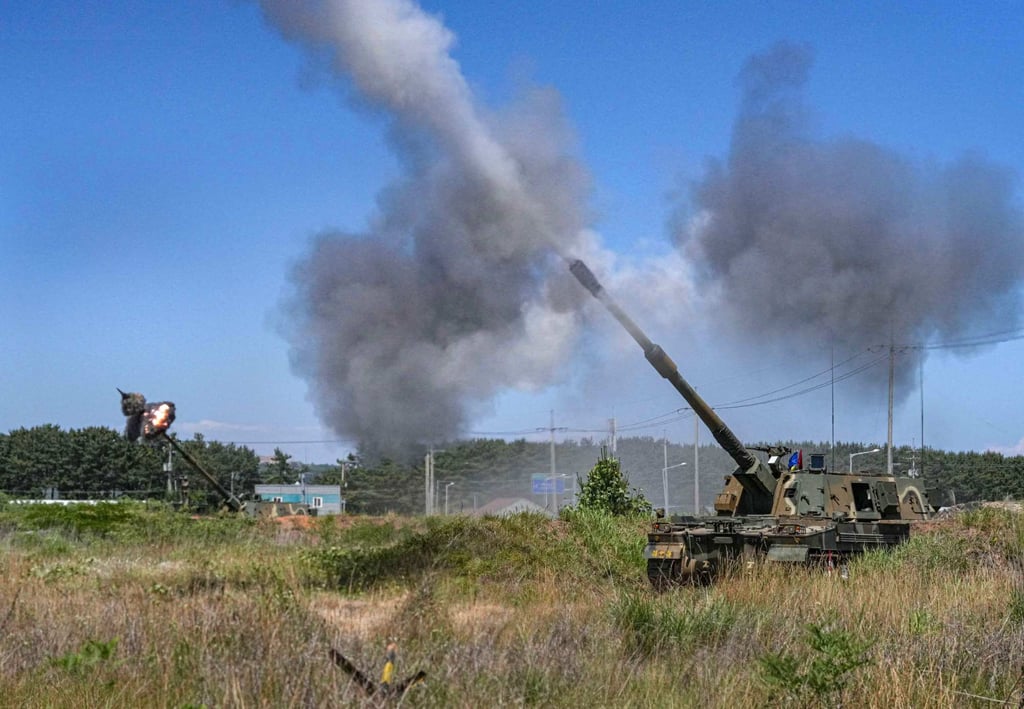
Shin pointed to the increasing nuclear and missile threats from North Korea, its growing military cooperation with Russia, and the potential for attempts to alter the regional status quo by force as key factors necessitating the enhanced security framework.
Shin, his Japanese counterpart Minoru Kihara and US Defence Secretary Lloyd Austin signed the TSCF in Tokyo on Sunday. The agreement “institutionalises trilateral security cooperation among defence authorities, including senior-level policy consultations, information sharing, trilateral exercises, and defence exchange cooperation, to contribute to peace and stability on the Korean peninsula, in the Indo-Pacific region, and beyond”, the US Department of Defence said in a statement.
The three defence leaders commended the successful execution of the multi-domain trilateral exercise “Freedom Edge” in June, it said.
Through the drill, the three countries expressed their shared resolve to promote trilateral interoperability to “safeguard freedom and ensure peace and stability in the Indo-Pacific, including the Korean peninsula”, the statement added.
Shin, the first South Korean defence minister in 15 years to have bilateral defence ministers’ talks with Japan, expressed hope that his country’s defence cooperation with Japan will continue to move forward.
“Due to domestic political reasons in both countries, defence and security cooperation between South Korea and Japan has sometimes slid back or stagnated, even though it is necessary for both countries’ national interests,” he said. “Now that it has resumed in earnest, I hope that it will not retreat or stall again.”
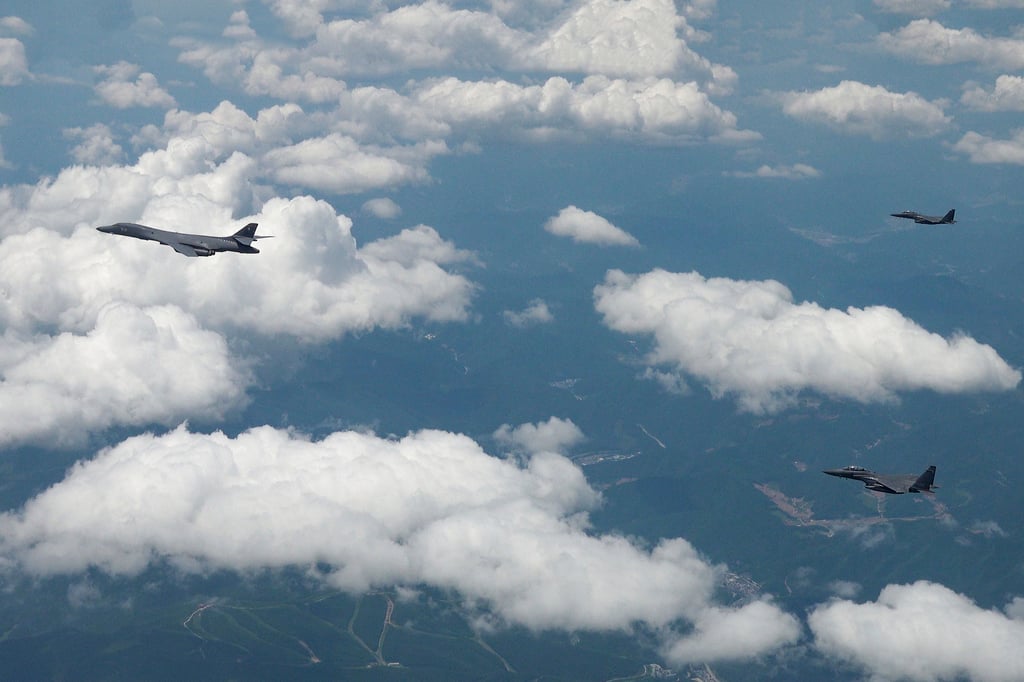
Kim Jung-sup, a senior researcher at the Sejong Institute, said the framework could face challenges due to differences in priorities among the three countries involved.
“For South Korea, North Korea’s nuclear and missile threats are given top priority, while the containment of China is top of US and Japanese minds,” Kim told This Week in Asia.
Given these gaps, bolstering the three-way defence cooperation beyond the needed extent to fend off North Korean threats could hurt South Korea’s national interests by antagonising China and Russia, he said.
Shin’s remarks were timed with Seoul withdrawing its years of opposition against Tokyo’s move to register the historic Sado gold mine as a Unesco World Heritage site.
Seoul’s approval for the move enabled the Sado gold mine to gain Unesco status after Tokyo pledged to exhibit dark WWII history, including the abuse of Korean workers.
But critics said Japan failed to acknowledge the “forced labour” of Koreans who had to toil there under harsh conditions during World War II.
“We have again been stabbed in the back,” Kang Yu-jung, floor spokeswoman of the main opposition Democratic Party of Korea (DPK), said in a statement on Sunday.
She noted the exhibition venue is located 2km away from the Sado Island gold mine and fails to describe Korean workers as “forced labour”.
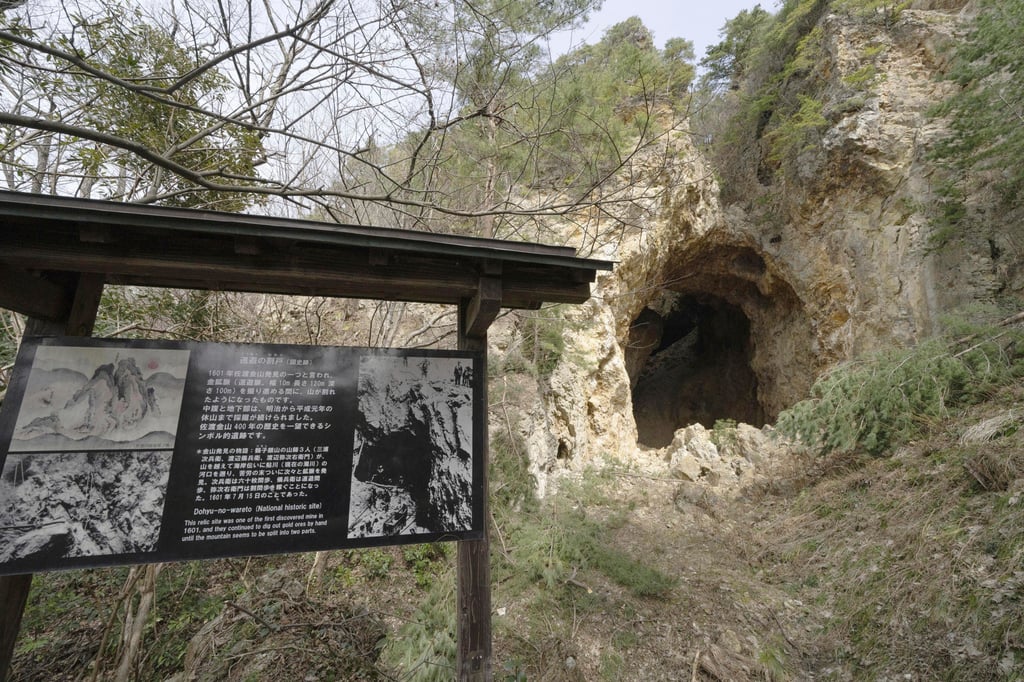
Park Chan-dae, the DPK’s interim head, on Monday accused the conservative President Yoon Suk-yeol’s government of hurting “national pride and dignity by pandering to Japan” and cooperating with Japan’s attempts to “gloss up wartime atrocities”.
Japan already failed to honour similar commitments, such as those made when Hashima Island gained Unesco status in 2015, he said.
The Japanese government at that time reportedly promised to raise public awareness about the forced labour of Koreans and others under harsh conditions at Hashima Island and other industrial heritage sites of the 1930s and 1940s.
But many commitments went unfulfilled, including establishing an information centre or informational panels to educate the public about the forced mobilisation, the Korea Herald said on Monday.
“We will conduct a thorough investigation and hold those responsible strictly accountable,” Park added.
Jeh Sung-hoon, a professor of Russian Studies at Hankuk University of Foreign Studies, said the strengthened trilateral security cooperation could deepen the “security dilemma” faced by South Korea rather than reduce it.
“Should the three countries step up security cooperation, Russia and North Korea would further intensify military cooperation in response. This vicious cycle of tension escalation would continue in the absence of diplomacy until one part, which can’t bear the pressure any longer, may start a war,” he said.
Moon Seong-mook at the Korea Research Institute for National Security, said however, the TSCF would help promote security cooperation among the three signatories regardless of domestic political changes.


